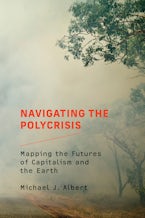With a thoroughness that is dazzling, Dauvergne has written the missing chapter in the tragedy of Southeast Asia's forest plunder. Link by link, Dauvergne constructs previously obscured chains—from the men with the chainsaws all the way back to Japan's rapacious appetite for timber and the private and public institutions feeding that appetite.
Robin Broad, Associate Professor, International Development Program, American University; co-author Plundering Paradise: The Struggle for the environment in the Philippines
Large-scale timber harvests in Southeast Asia began in the 1950's in the Philippines amidst almost total ignorance of the complex ecology of tropical forests, an ignorance not at all dispelled by the time these harvesting practices spread southward into East Malaysia and Indonesia in the sixties and seventies. Dauvergne's book limns the Japanese role in this process, first as a near monopsonistic importer of logs, then as investor in extractive activities, and finally as major importer of plywood. The book shows that while all parties to tropical deforestation in the region have learned something from this checkered history, none, including Japanese corporations and government agencies, have learned very much.
Malcolm Gillis, Professor of Economics, Rice University
I am extremely enthusiastic about this book. It has significance in terms of developing the concepts of patron-client relations and shadow ecology as useful tools for analyzing a major new issue in international politics. It also contains a wealth of detailed information that will be immensely valuable to the researcher on global forest issues as well as Southeast Asian politics. No one else has taken on this broad set of topics with this depth and comprehensiveness. The research appears to me to be truly exhaustive, reflecting the author's research appears to me to be truly exhaustive, reflecting the author's research in the field as well as familiarity with the existing scholarly literature. For these reasons, I would judge it to be the authoritative scholarly work on the politics of tropical rainforests for a long time to come.
Gareth Porter, International Program Director, Environmental Energy Study Institute
Peter Dauvergne's remarkable book tells a grim tale about the ties that bind consumption-hungry industrial societies to far-off patronage relations in poorer countries - and how these ties have led to irreversible environmental degradation. While Japan remains one of the most heavily forested countries in the world, its actions have led to the disappearance of 80 percent of Philippine forests, with Indonesia and Malaysia not far behind. Shadows in the Forest demonstrates the power of social science to open new windows for us on how international society operates, on how, in this case, Japanese money has sustained a web of local state-society relations that has scarred the face of Southeast Asia.
Joel S. Migdal, Robert F. Philip Professor of International Studies, The Henry M. Jackson School of International Studies, University of Washington
... sets out a wealth of documented detail that shows how we should be super-sceptical of 'official' business statistics. This is one of the most illuminating tropical forestry books of the last decade.
Norman Myers

Winner, 1997 Harold and Margaret Sprout Award given by the International Studies Association (ISA).











